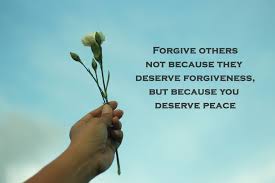Twisting Religion!
I ’ve been writing and speaking about social isolation for years. It’s our most significant health crisis. Finding solutions is challenging. Among the opportunities that people generally dismiss and ignore is participation in organizations and groups, populating our disconnected lives. And one of many opportunities to connect of course is in a faith community. That’s right ‘organized religion.’ If you just threw up in your mouth reading that, take a second to swallow and breathe. There is something to share here. I grew up in an active and devout Catholic family. We were all in until I drifted away in college and afterward. When I decided to reconsider the matter I made a wonderful choice, one typical for me. I went back to graduate school. I was performing standup comedy every night at the Comic Strip Comedy Club on the Upper East Side of Manhattan. And I spent my days at Union Theological Seminary at Columbia University across town. It was a rich academic experience and changed me. Allow me to share a pertinent observation.
’ve been writing and speaking about social isolation for years. It’s our most significant health crisis. Finding solutions is challenging. Among the opportunities that people generally dismiss and ignore is participation in organizations and groups, populating our disconnected lives. And one of many opportunities to connect of course is in a faith community. That’s right ‘organized religion.’ If you just threw up in your mouth reading that, take a second to swallow and breathe. There is something to share here. I grew up in an active and devout Catholic family. We were all in until I drifted away in college and afterward. When I decided to reconsider the matter I made a wonderful choice, one typical for me. I went back to graduate school. I was performing standup comedy every night at the Comic Strip Comedy Club on the Upper East Side of Manhattan. And I spent my days at Union Theological Seminary at Columbia University across town. It was a rich academic experience and changed me. Allow me to share a pertinent observation.
Theologian Dr. Diana Butler Bass is a Duke University trained theologian. In her writing she calls out a misinterpretation of the early history of the Jesus movement. She calls it ‘the great reversal.’ Simply put she asserts that today people assume that the way into Christian practice is that first you come to believe. Once involved, you then learn how to behave according to the teaching (you know love, forgiveness and mercy?) And finally you get to belong. Okay. But this was not the original model. The history is different. Jesus’ charismatic appearance as a teacher and healer gathered large crowds who were amazed at his teachings and healing and they followed him. So it started with them belonging to his movement. Once he had their attention he then taught them how to behave, the Sermon on the Mount for example: you know “turn the other cheek” and “love your neighbor as yourself?” As a result of this experience of their belonging to the Jesus movement and their own changed behavior they came to believe. So it went from belonging to behaving to believing. Yet for many we think about it the other way around. I chose to believe and I will then learn how to behave and then I get to belong. Nope.
Like the origins of the movement it can begin with belonging and scratching the itch of isolation. When we gather with others and over time absorb the way of life in our behavior (you know, the whole love, forgive and serve gig?) In time you can come to believe in the health and power of such behavior. In the end it’s love and service for ourselves and others, the path toward healing the self and those around us. Is it psychology? You bet, because it’s addressing our anxiety. Is that religion? Ah, should be if it’s not lousy religion. ‘Can any one of you by worrying add a single hour to your life?’ Yes, so reflect on belonging, behaving and believing as a path to change. It’s therapy, a self help path that works. And you can do it in many faith systems. And you can still be appalled by how other religious leaders are screwing it up. Onward.